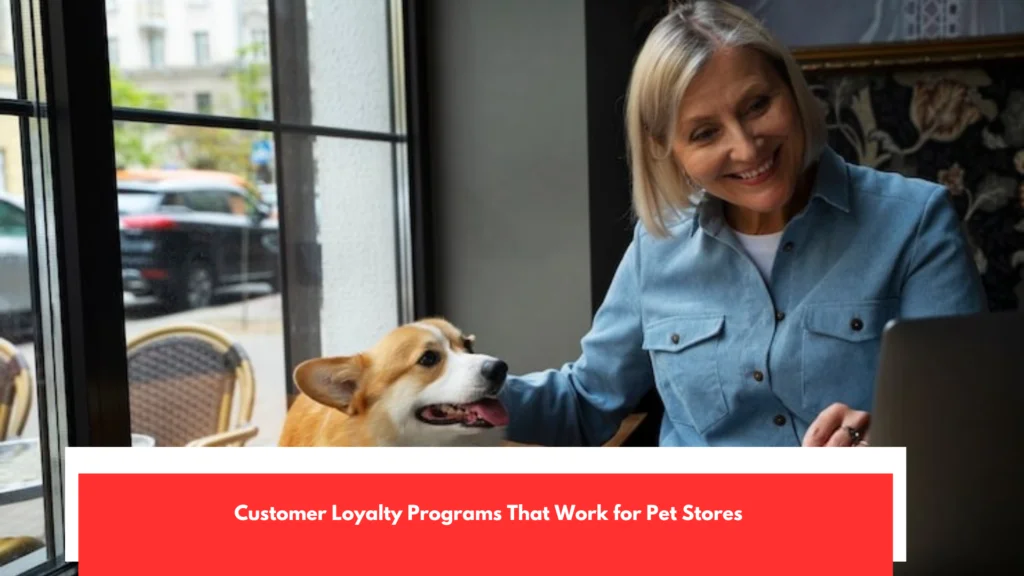Customer Loyalty Programs That Work for Pet Stores. In a competitive market like pet food, the loyalty of distributors turns out to be a central foundation in advancing and maintaining your business. At Tramppet Food, we appreciate that not only do you need to close a wholesale sale but you also need to develop good working relations with your distributors. This is the only way to develop a network of loyal partners ready to market your products in the long-term. Customer loyalty is not a cost it is a strategic investment that has a direct effect on your outcomes. In this article, we will find out why it is more profitable to retain rather.
Than get new customers and what important steps you can take to ensure you keep the customer relationship going strong. Distributor retention is maintaining a sales channel that is already aware of your brand, your products, and your processes. A loyal distributor will need less training effort, will be more aware of the value proposition and will make more and bigger purchases on average than a new customer. With a consistent portfolio of distributors, your production and procurement.
Why are customer loyalty programs important?

Can planned more effectively by your operation department. Predictable orders will avoid stock surpluses or shortages that will tarnish your image. Further, you can negotiate better terms with your suppliers by having a group of loyal distributors, as you can assure them of a minimum amount of purchase at any point of the year. Word-of-mouth and recommendation among other distributors is an vital element in the B2B pet marketing world.
A happy distributor does not merely re-order: he or she becomes a brand ambassador, displays your products at a trade show within the industry, and promotes the value of your service to the new customer. That organic evangelization cannot duplicated by ad campaigns, because it is credible and authentic. The expense of obtaining a new distributor (investments in trade shows, specialized advertising, product demonstrations, and face-to-face visits) in any commercial strategy is usually five times more than the expense of maintaining an existing satisfaction.
How do I administer my pet-care brand loyalty program?

When you compare the time, travel, and presentation materials of your sales team, you find it is better to use the relationship you already have. To demonstrate: suppose you attend an industry trade show and convert five new distributors at a cost of one thousand, one hundred euros. That would come to an acquisition cost of 200 euros per distributor. Conversely, drivers will spend less on each distributor (only 50 per annum on incentives, training, and samples) and produce a more predictable purchase volume by paying each of a ten established distributors a fixed amount during the year (500).
Over the long run, the loyal distributors not only make consistent orders, but also make bigger orders with more predictable payment conditions. This is because such consistency in cash flow enhances financial planning and eliminates the necessity of tapping into credit facilities or seeking external funds. The development of an effective loyalty program should be accompanied by the creation of a complex of integrated strategies, which will be supported in the long term.
Best brand loyalty programs for pet-care businesses

Not only do these moves reinforce your commitment to your brand, but they also serve to remind distributors that you appreciate them as strategic partners. Constant communication: Have newsletters B2B that consist not only of products but also the situation in the market (such as the development of the so-called grain-free segment or the popularity of hypoallergenic recipes). Include whatsapp or slack groups where you can ask quick questions and hold weekly webinars where you invite an animal nutrition or digital marketing specialist. Intelligent incentive plans.
In addition to simple volume discounts, develop tiered incentive schemes: bonuses, based on quarterly quotas, special access to scarce stock, small corporate gifts (merchandise kits, launch samples). You may have a points system that can be redeemed to get benefits creating healthy competition in your network. Technical and sales Support: Have internal team or key account manager per major distributor. This professional will go with the distributor on tours to large retailers, participating in demonstrations at veterinary clinics, and lecturing to new end customers.
Strengthening Distributor Engagement Through Experiences

Such help eliminates the impression of isolation upon signing the agreement and helps solve the problems quickly. Unique events and experiences: Host open house tours at your manufacturing facility, sample new items, describe how things work, and hand out promotional material. When distributors are involved in such experiences, they become more emotionally attached to the brand and this attachment makes them more committed in the long run. Organized feedback and continuous improvement: It should introduce simple quarterly surveys such as Net Promoter Score (NPS), online focus groups.
Compare the findings and report improvements that you will make. Demonstration of an action plan depending on their recommendations makes them feel more collaborative and to be the owners of the project. Some of the most notable distinctions in B2B pet marketing include training your network and giving early access to new products. To maximize impact: Host both face-to-face and online training events: you should explore the nutrition value of each product line weight control, digestive, joint support, etc. Send some free samples / travel kits with mini doses of the new releases of the month.
